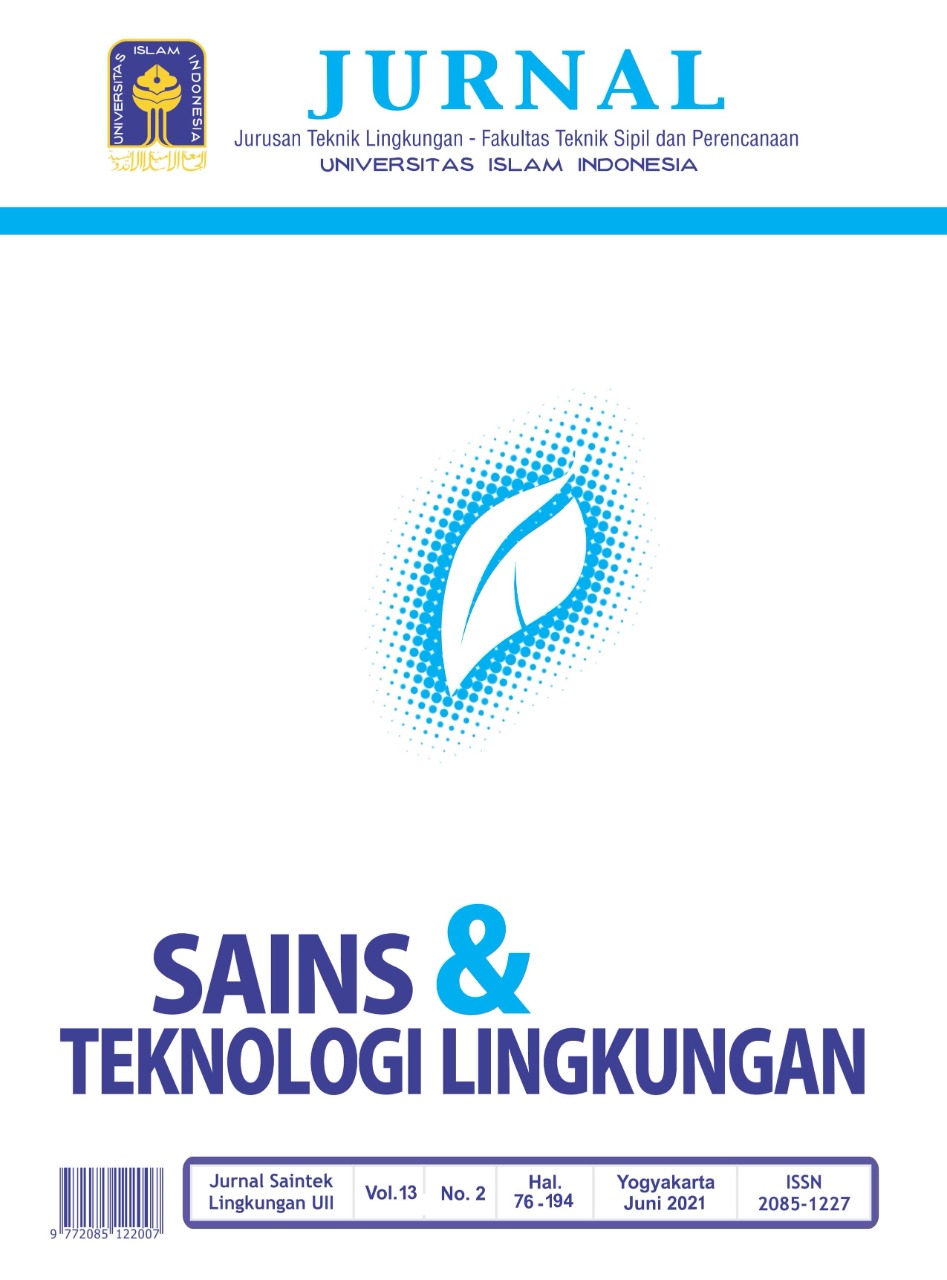Main Article Content
Abstract
The large number of laundry in big cities also results in a lot of environmental pollution produced by these laundry services. Pollution from laundry services contains a lot of contaminants such as Chemical Oxygen Demand (COD), phosphate and so on. This study aims to examine how much the effectiveness of the type of media and the height of the media in removing COD and phosphate levels in laundry wastewater. The method applied is an adsorption system using activated carbon and zeolite media which is arranged in a series of laboratory scale reactors with media heights of 40 cm and 60 cm. The research reactor consisted of 4 reactors containing activated carbon and zeolite media. The results showed that the efficiency of COD levels using activated carbon media in reactor 1 was 72.48%. The highest efficiency for COD levels using zeolite media in reactor 3 is 64.55%. Meanwhile, for the phosphate content with activated carbon media, the reduction efficiency in reactor 2 was 92.09%, while the zeolite media with the highest efficiency was found in reactor 4, which was 96.44%. The media that was most effective in reducing COD levels was activated carbon media, while zeolite media was used to reduce phosphate levels. Moreover the height of the medium that was effective in reducing COD levels was activated carbon with a height of 40 cm, while lowering the levels of phosphate was a zeolite with a height of 60 cm.
Keywords
COD
Phosphate
activated carbon
Zeolit
Article Details
License
Authors who publish with this journal agree to the following terms:
- Authors retain copyright and grant the journal right of first publication with the work simultaneously licensed under a Creative Commons Attribution License that allows others to share the work with an acknowledgement of the work's authorship and initial publication in this journal.
- Authors are able to enter into separate, additional contractual arrangements for the non-exclusive distribution of the journal's published version of the work (e.g., post it to an institutional repository or publish it in a book), with an acknowledgement of its initial publication in this journal.
- Authors are permitted and encouraged to post their work online (e.g., in institutional repositories or on their website) prior to and during the submission process, as it can lead to productive exchanges, as well as earlier and greater citation of published work (See The Effect of Open Access).
